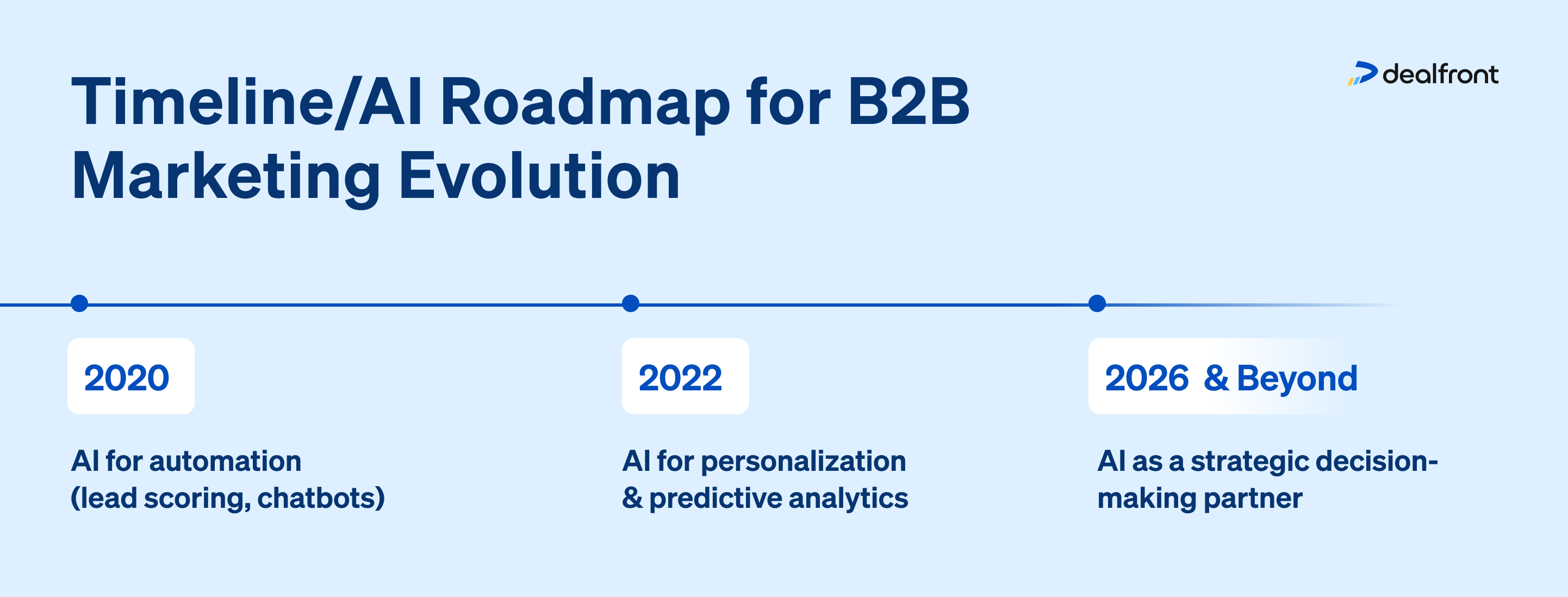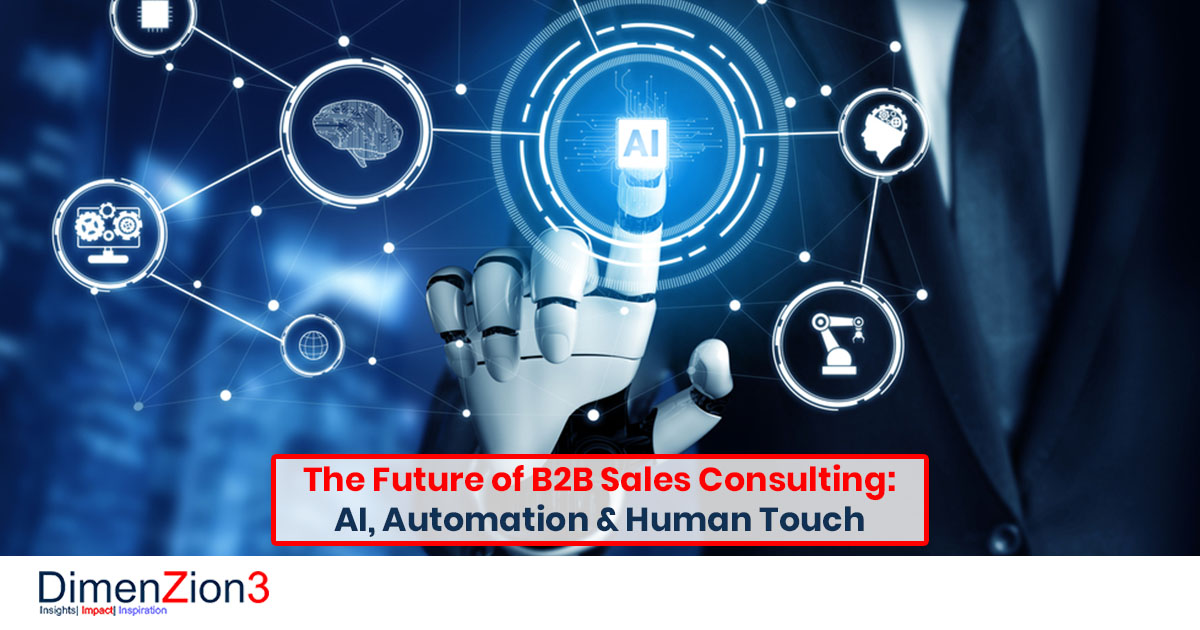Top strategies for implementing AI Automation For B2B effectively
Wiki Article
AI Automation for B2B: Strategies to Enhance Your Business Efficiency
AI automation in the B2B industry presents a critical opportunity for organizations to boost their efficiency. By boosting and simplifying processes decision-making, companies can achieve considerable efficiencies. However, the effective integration of AI requires careful factor to consider of different variables. Comprehending which areas to automate and picking appropriate tools are just the beginning. The possibility for improvement increases critical inquiries concerning implementation and continuous assessment. What methods will ensure enduring success in this evolving landscape?Understanding AI Automation in B2B Context
As companies significantly seek efficiency and innovation, understanding AI automation in the B2B context becomes crucial. AI automation leverages sophisticated technologies to enhance procedures, improve decision-making, and boost general productivity. By incorporating AI devices, business can optimize operations such as supply chain monitoring, consumer connection monitoring, and information evaluation. These modern technologies can examine large quantities of information swiftly, supplying actionable insights that drive calculated campaigns. Furthermore, AI-driven automation reduces human mistake and frees up workers to concentrate on even more complex jobs. By promoting partnership between human intelligence and machine capabilities, companies can attain an affordable edge. Ultimately, understanding AI automation is essential for B2B organizations intending to grow in an increasingly electronic marketplace.Recognizing Locations for Automation
In the pursuit for effective AI automation in B2B, it is vital to recognize details locations where automation can produce substantial advantages. This includes assessing task monotone, exploring chances for information processing, and identifying workflow bottlenecks. By concentrating on these elements, organizations can improve procedures and enhance efficiency.Job Repetitiveness Analysis
Task monotone evaluation plays an important role in determining areas ripe for automation within B2B operations. Minarik AI. This process includes examining everyday tasks to identify which are lengthy and repeated, consequently hindering performance (AI Automation For B2B). By scrutinizing workflows, services can identify specific functions that call for extreme hands-on input, such as data access, billing processing, or consumer follow-ups. Acknowledging these repeated jobs permits organizations to assign sources better, enhancing total efficiency. Additionally, automation can reduce human mistake, improve procedures, and liberate workers to concentrate on higher-value tasks. Carrying out a thorough task repetitiveness evaluation encourages B2B organizations to take on targeted automation methods, ultimately driving improved efficiency and competitive advantage in the marketplaceData Handling Opportunities

Operations Bottleneck Recognition
Identifying process traffic jams is an important action in understanding the full benefits of automation within B2B companies. These traffic jams typically show up as hold-ups, source constraints, or ineffective processes that hinder efficiency. To efficiently identify these areas, companies can perform thorough analyses of their process, making use of metrics such as cycle time and throughput. Involving employees in conversations about discomfort points can additionally supply valuable understandings. As soon as traffic jams are recognized, companies can prioritize them based on influence and expediency for automation. By tactically resolving these inadequacies, B2B firms can simplify procedures, improve collaboration, and ultimately boost total efficiency. This aggressive technique to operations evaluation lays the groundwork for effective automation efforts that drive company development.Choosing the Right AI Equipment and Technologies
As organizations increasingly turn to AI to improve their operations, selecting the right tools and technologies ends up being crucial for accomplishing desired end results. Organizations must assess their certain demands and objectives, taking into consideration factors such as user-friendliness, compatibility, and scalability. A comprehensive market analysis can help recognize leading AI services customized for their sector. Additionally, organizations must evaluate the technical infrastructure required to support these devices, making sure seamless assimilation with existing systems. Information security and compliance with laws are also crucial considerations that influence device option. By concentrating on these standards, companies can make enlightened choices that drive efficiency and performance, ultimately resulting in enhanced organization efficiency. The right AI tools equip companies to introduce and keep an one-upmanship on the market.Developing a Tactical Implementation Strategy
A successful critical application plan for AI automation in B2B needs plainly specified key goals. Additionally, companies have to analyze their present capacities to identify gaps and possibilities for enhancement. Constant tracking and modification of the method will certainly ensure positioning with advancing organization needs and innovation advancements.Specify Secret Purposes
To guarantee effective AI automation in B2B environments, specifying vital goals is essential for establishing a tactical application plan. Organizations should recognize certain, quantifiable goals that align with their total organization approach. This quality supplies a roadmap for the automation procedure, making certain that efforts are focused on locations that will certainly generate the highest impact. Key goals may consist of boosting functional efficiency, boosting consumer complete satisfaction, or raising profits. Establishing these purposes enables teams to prioritize resources effectively and track progression with time. Additionally, clear purposes assist in much better interaction amongst stakeholders, fostering partnership and alignment throughout the company. Ultimately, distinct goals serve as the foundation for a robust AI automation technique that drives business efficiency.Examine Current Capacities
Prior to executing AI automation, organizations need to thoroughly examine their present capacities to recognize strengths and weak points. This analysis includes analyzing existing innovations, workforce abilities, and operational processes. By carrying out a thorough audit, companies can determine locations that need improvement or investment. Organizations ought to also consider their information monitoring practices, as the top useful reference quality and availability of information are essential for successful AI combination. Comprehending the present technical landscape enables companies to align their resources and capabilities with their strategic objectives. Furthermore, it is important to evaluate firm society and preparedness for modification, as these elements substantially affect the adoption of AI remedies. This evaluation functions as the structure for establishing a strategic execution strategy that makes best use of the potential of AI automation.Screen and Readjust
Executing AI automation requires a dynamic approach that emphasizes constant surveillance and modification. Businesses have to create a tactical execution strategy that includes routine examinations of AI performance versus predefined metrics. This includes tracking essential efficiency signs (KPIs) to assess the effectiveness of automation options. By examining data, companies can identify areas for improvement and tweak their AI systems as necessary. Engaging with stakeholders throughout the procedure ensures that the automation lines up with business objectives and individual demands. Furthermore, cultivating a society of flexibility allows companies to react quickly to altering market conditions and technological improvements. Growth Systems For B2B. Eventually, ongoing tracking and adjustment not just boost operational efficiency yet additionally drive continual business efficiency in the competitive B2B landscapeEnsuring Data High Quality and Combination
As companies progressively rely upon AI automation in B2B processes, making certain information high quality and integration comes to be vital for success. High-grade information is crucial for precise analytics, notified decision-making, and reliable client involvement. Data should be cleaned, standard, and validated to remove mistakes and incongruities that can bring about illinformed insights. In addition, smooth integration throughout numerous platforms and systems is crucial; diverse information silos hinder automation initiatives and decrease functional effectiveness. Organizations needs to take on robust information administration structures and use advanced tools to facilitate information integration while maintaining quality standards. By focusing on these aspects, businesses can enhance their AI automation efforts, ultimately causing boosted efficiency and a competitive advantage in the B2B landscape.Measuring Success and ROI of AI Initiatives
How can companies efficiently measure the success and roi (ROI) of their AI efforts? To gauge performance, organizations ought to establish clear, measurable goals aligned with strategic goals. Key performance indicators (KPIs) such as price savings, revenue growth, and productivity improvements can offer important understandings. Organizations commonly carry out standard assessments prior to executing AI, enabling them to compare pre- and post-implementation metrics. Additionally, evaluating customer contentment and engagement can disclose the effect of AI on user experience. On a regular basis reviewing these metrics aids in refining AI methods and guaranteeing placement with company objectives. By using a structured technique to measurement and evaluation, organizations can accurately analyze the efficiency of their AI initiatives and make notified choices about future investments.Conquering Obstacles in AI Adoption
Although lots of companies recognize the capacity of AI to change their operations, they frequently run into substantial difficulties throughout fostering. Trick hurdles include a lack of knowledgeable personnel, which interferes with the reliable execution and administration of AI modern technologies. Organizations additionally face assimilation issues, as existing systems might not work with brand-new AI services. In addition, issues regarding data privacy and security can bring about hesitance in completely accepting AI capabilities. Resistance to change from staff members can even more make complex the shift, necessitating comprehensive training and interaction methods. To overcome these obstacles, organizations should buy talent advancement, warranty robust data administration, and promote a society that welcomes development, inevitably leading the method for successful AI combination and enhanced company performanceFrequently Asked Questions
Exactly How Can AI Automation Improve Consumer Connection Management in B2B?
AI automation can improve consumer connection administration in B2B by enhancing interaction, supplying personalized communications, assessing customer data for understandings, automating follow-ups, and boosting response times, inevitably fostering stronger partnerships and driving sales growth.What Industries Advantage Most From AI Automation in B2B?
Production, money, healthcare, and logistics sectors profit most from AI automation in B2B. These markets utilize automation to enhance procedures, improve information analysis, boost client communications, and ultimately enhance functional effectiveness and success.Exactly How Does AI Automation Effect Worker Roles in B2B Companies?
AI automation changes employee functions in B2B firms by enhancing jobs, minimizing repetitive work, and enabling staff to focus on critical efforts. This change improves productivity and fosters a culture of technology and adaptability.What Are the Expenses Related To Executing AI Automation?
The prices associated with applying AI automation include preliminary software program acquisition, infrastructure upgrades, training costs, recurring maintenance, and possible combination difficulties. AI Automation For B2B. Business need to additionally take into consideration lasting functional shifts and staff member adaptation costs in their economic preparationExactly How Can Businesses Make Sure Honest AI Use in Their Workflow?
Companies can guarantee ethical AI use by developing clear standards, promoting openness, performing regular audits, including varied stakeholders, and prioritizing data privacy. Continuous training and awareness programs further enhance understanding and adherence to honest techniques.
Report this wiki page